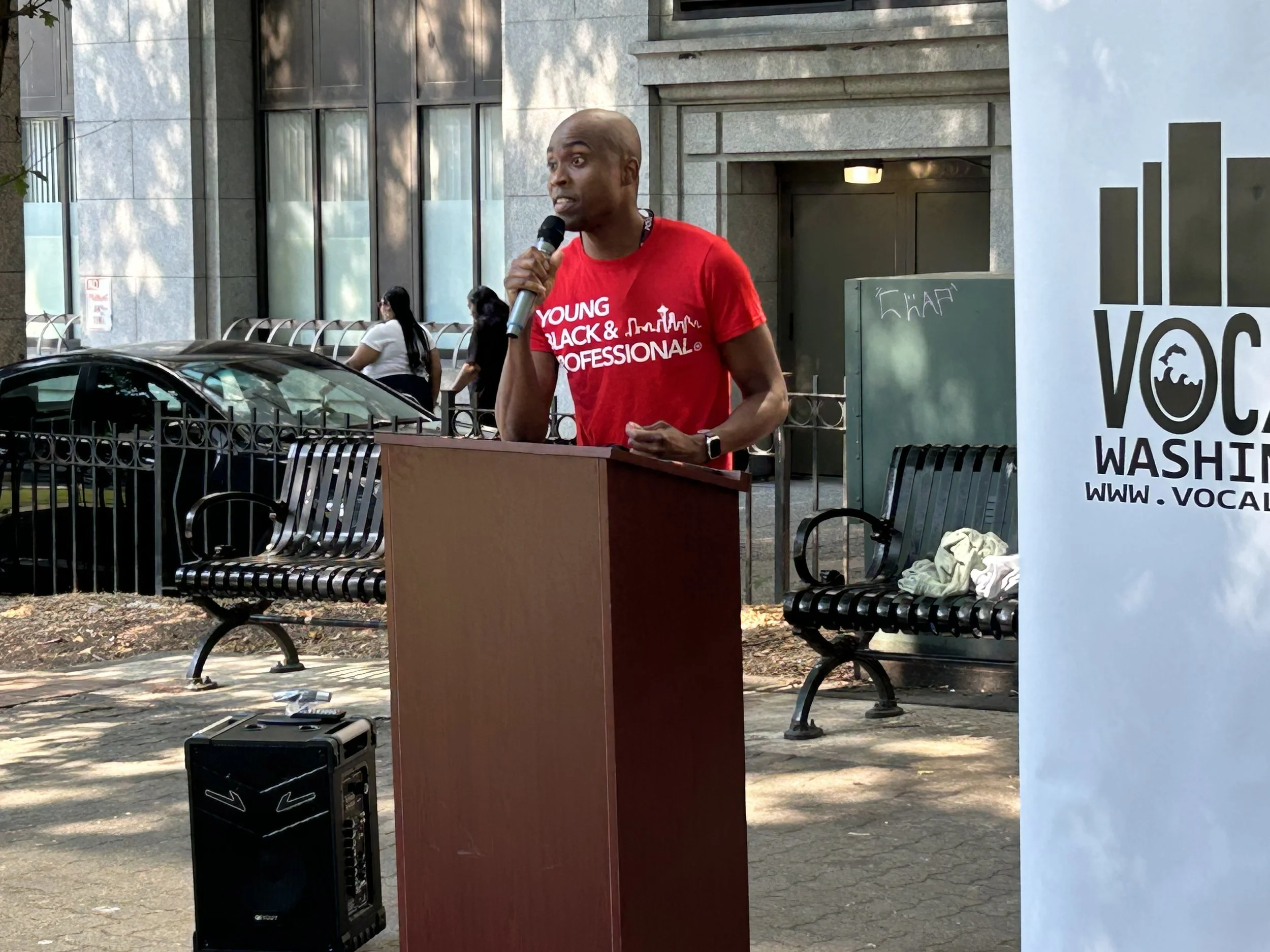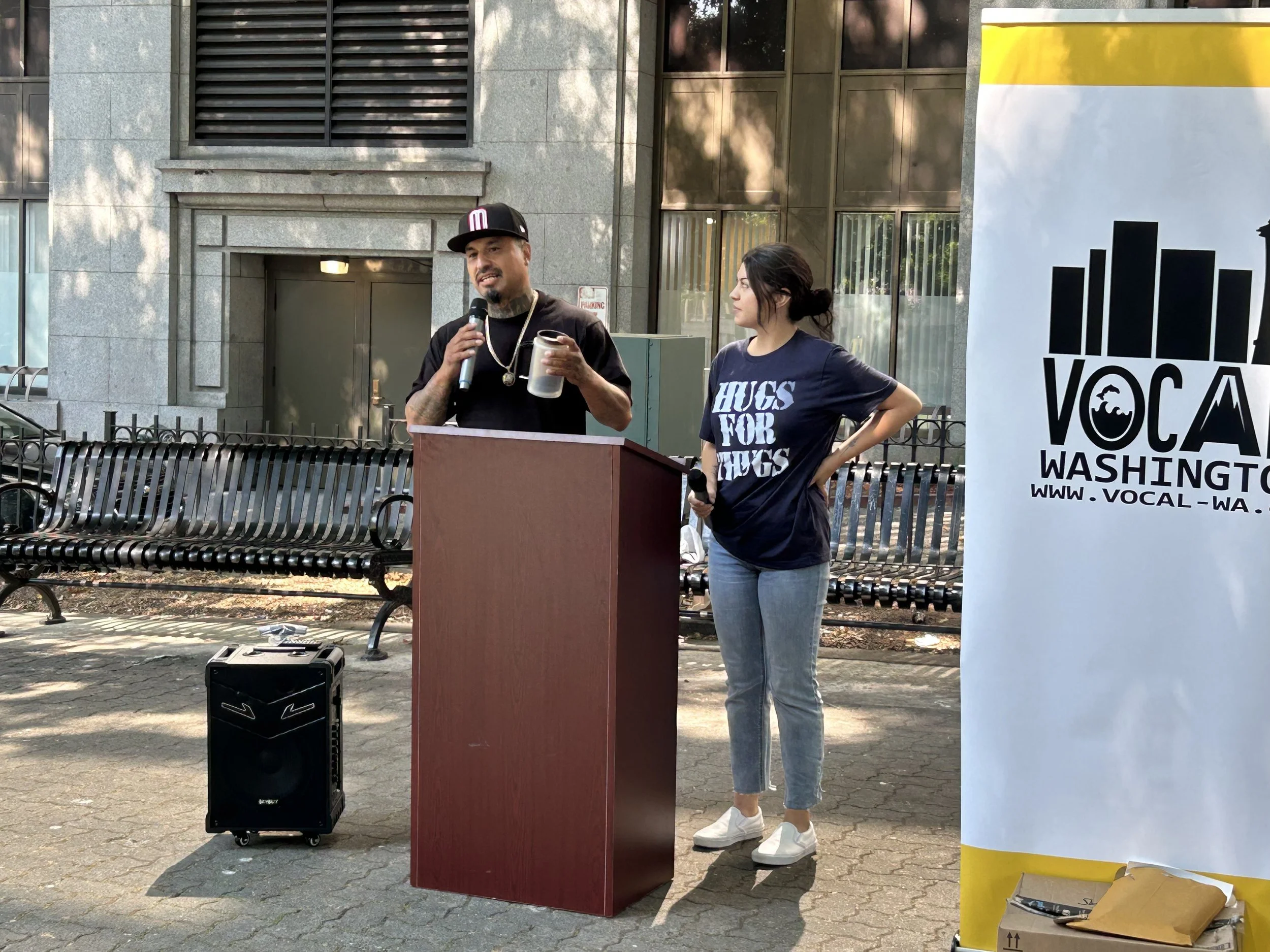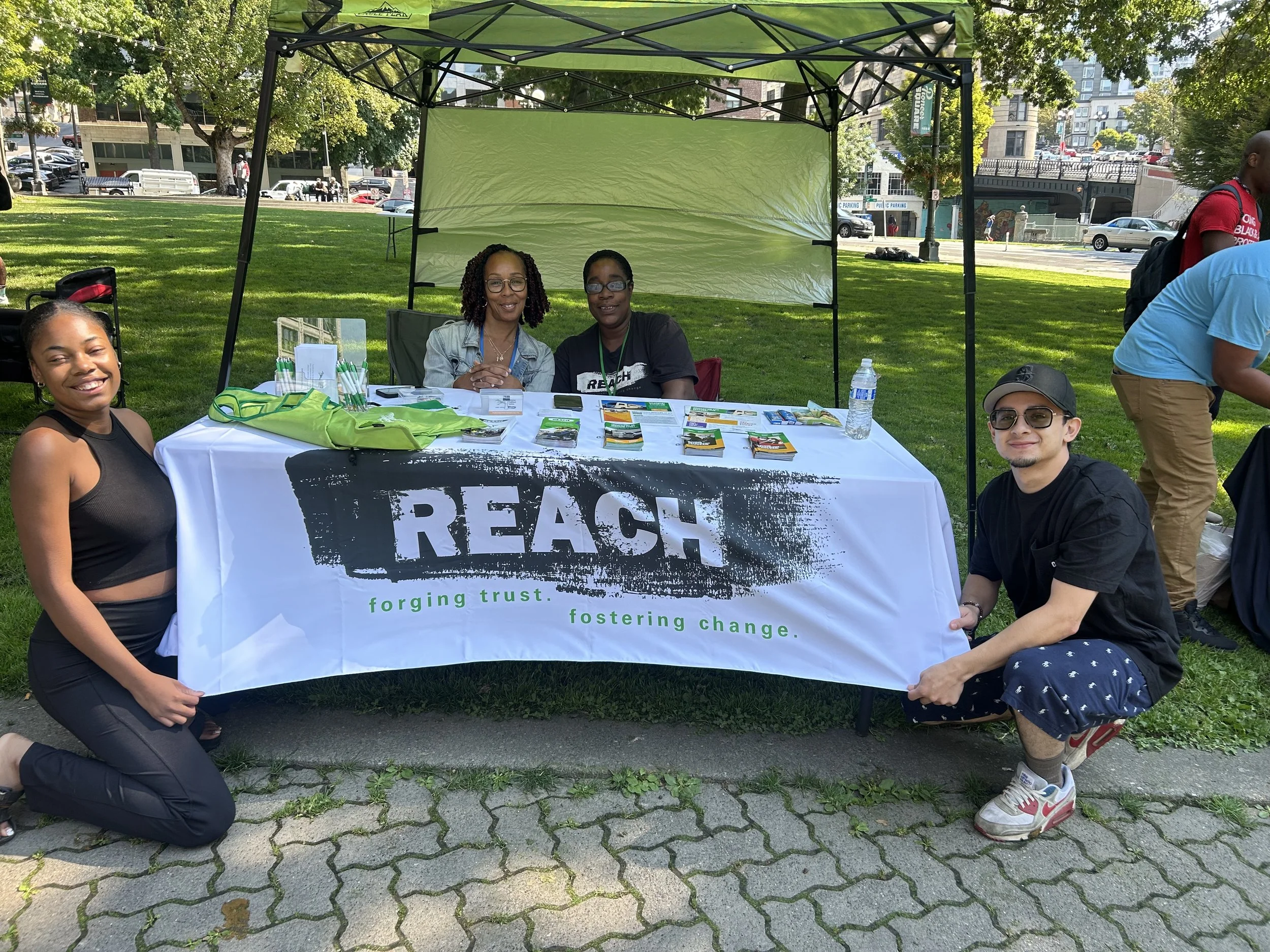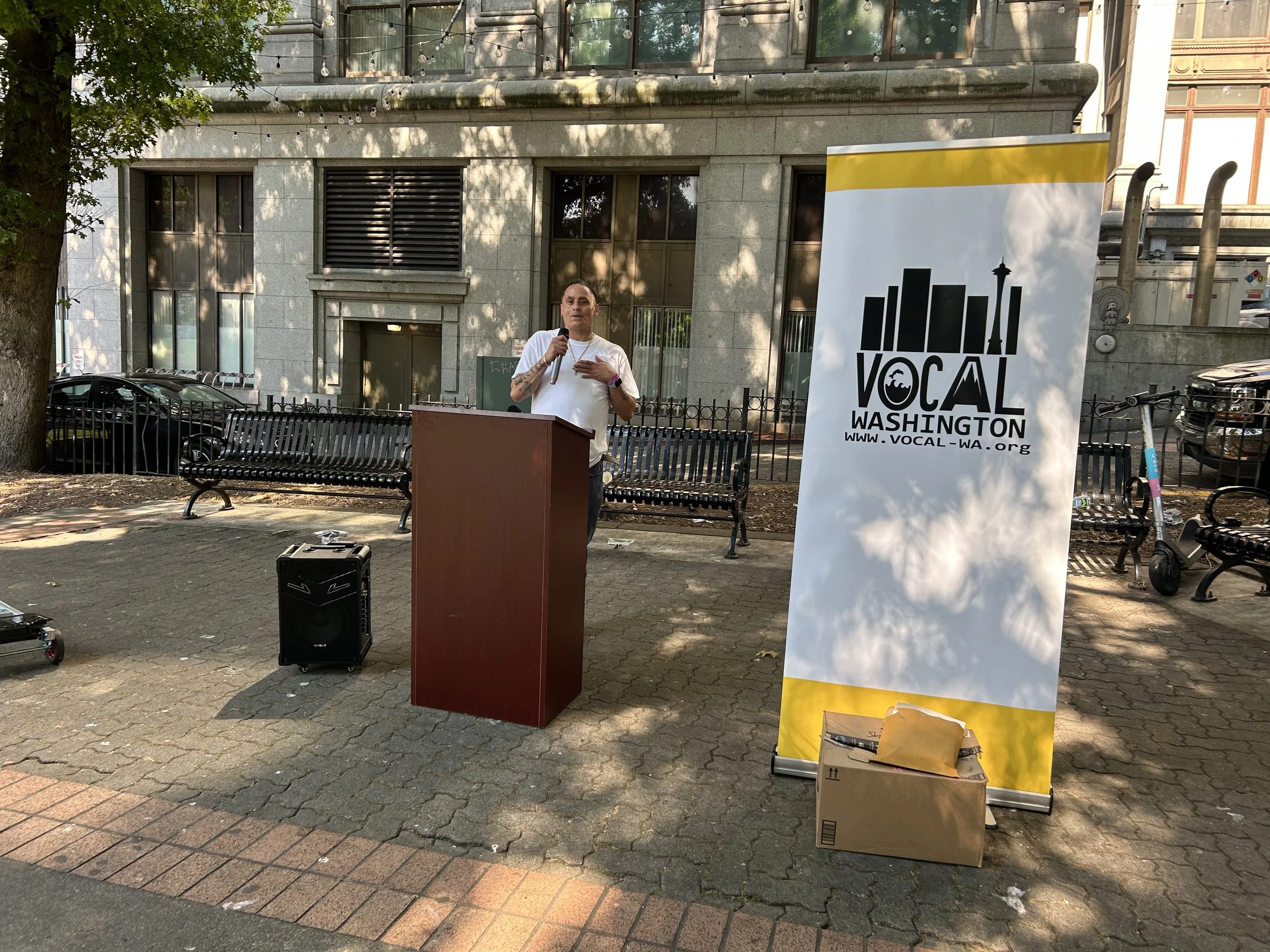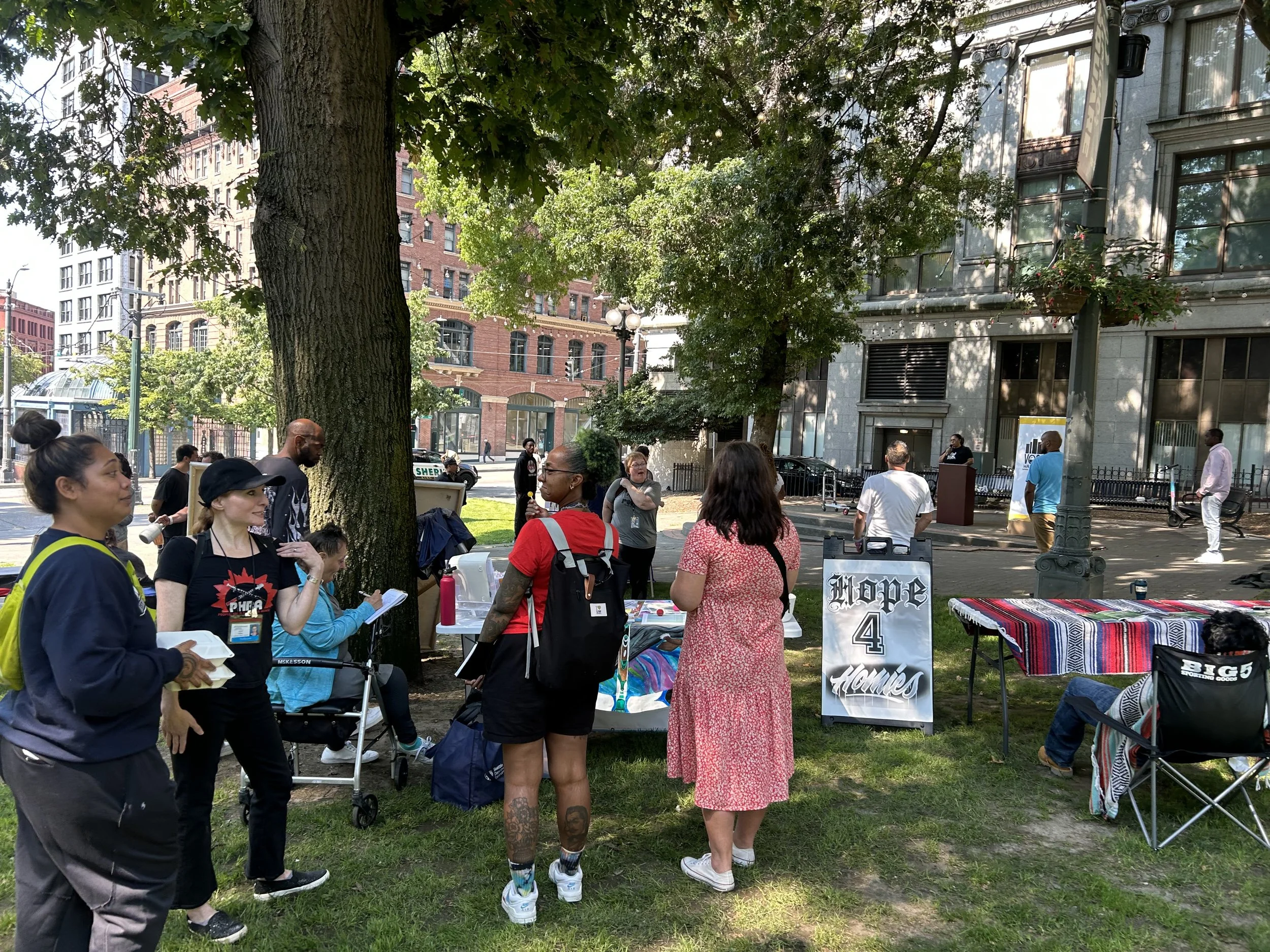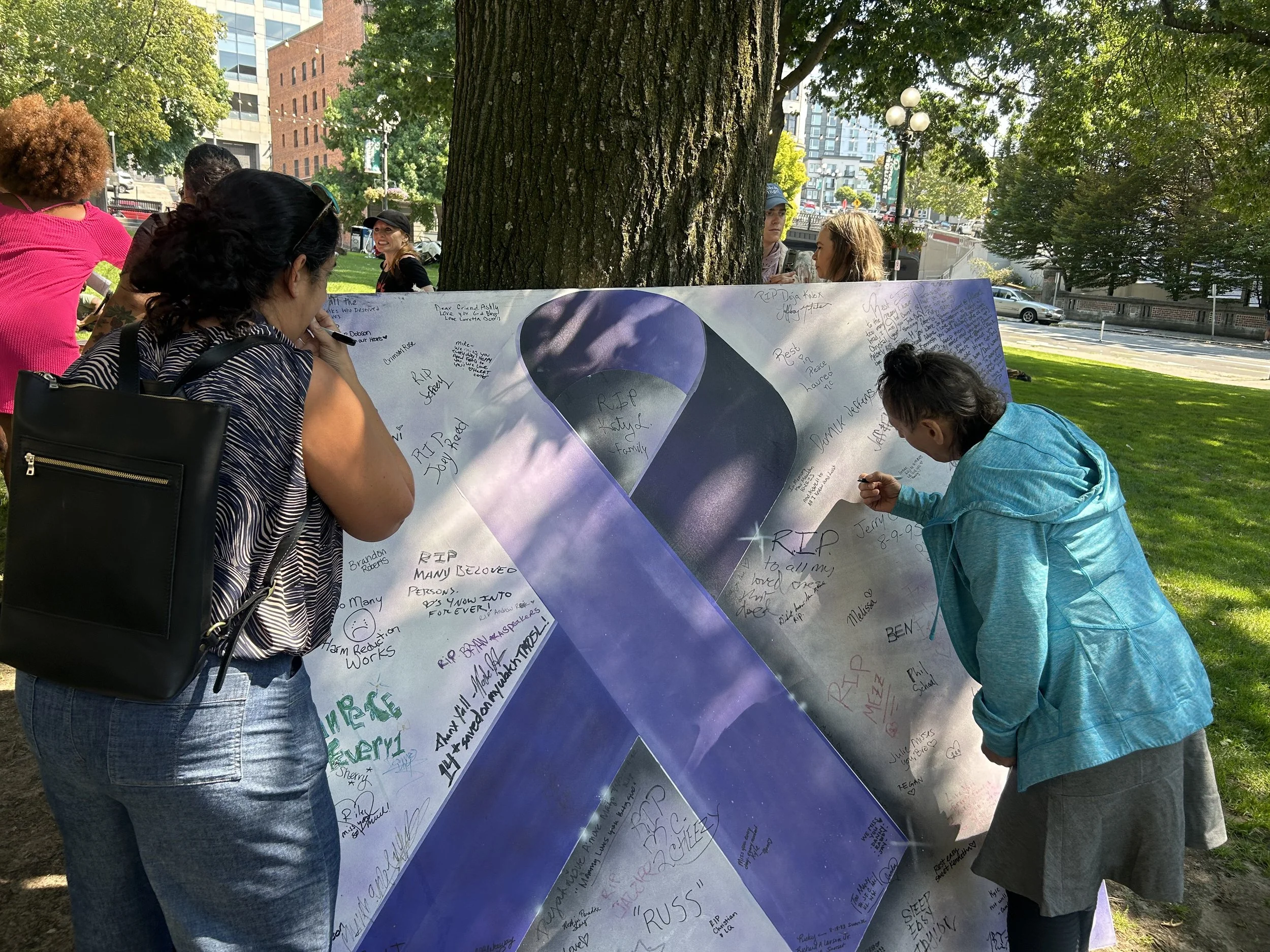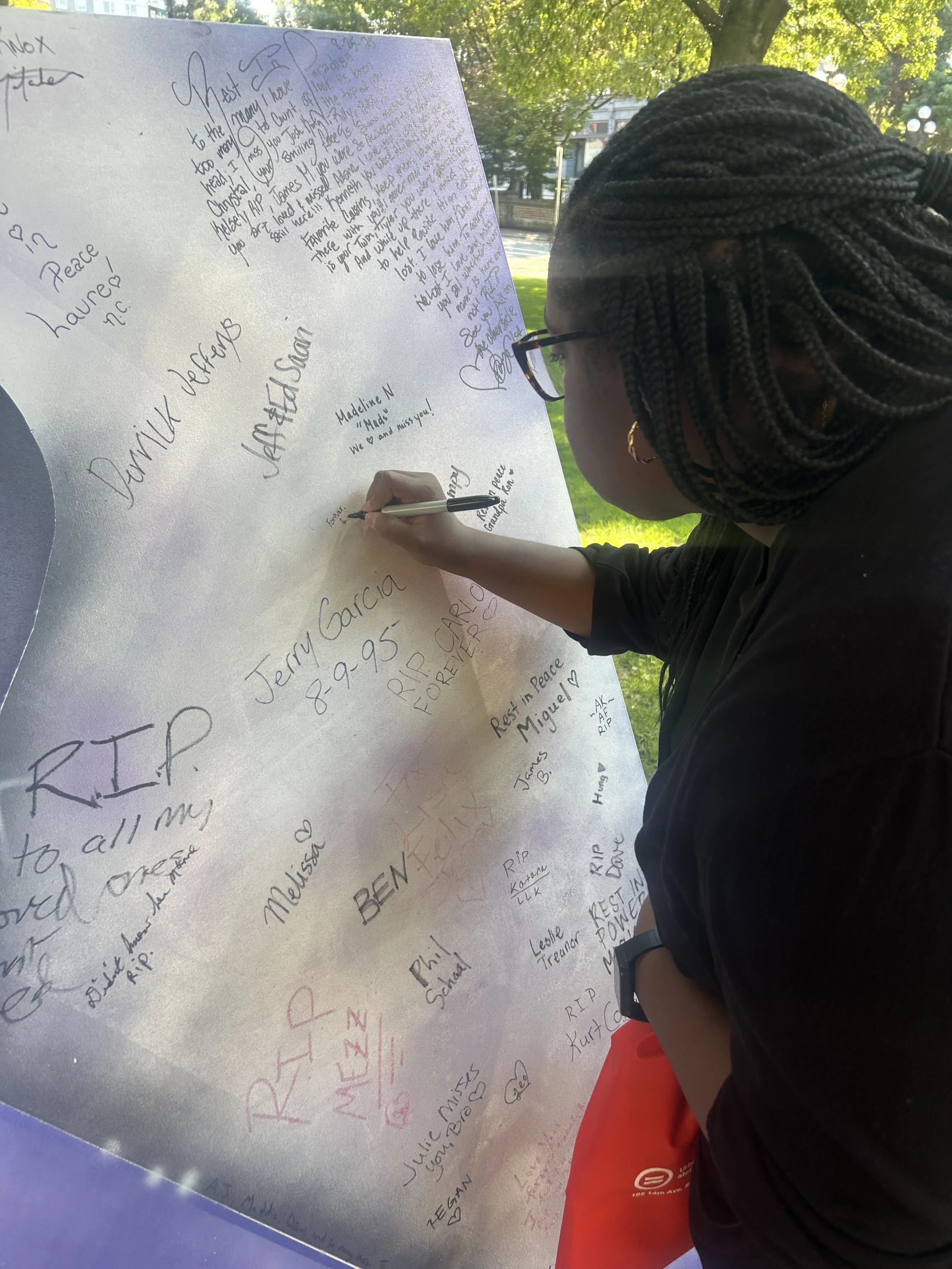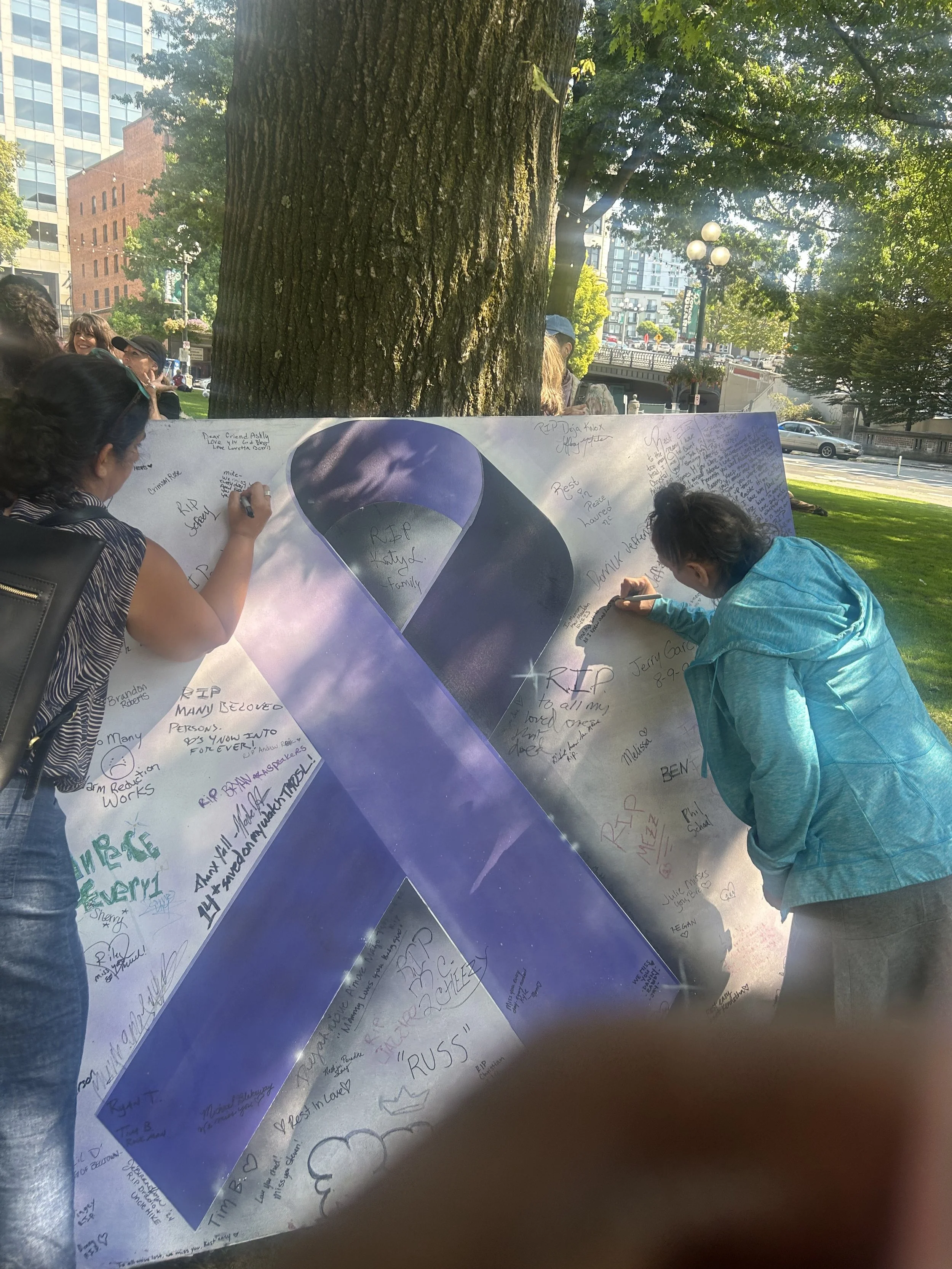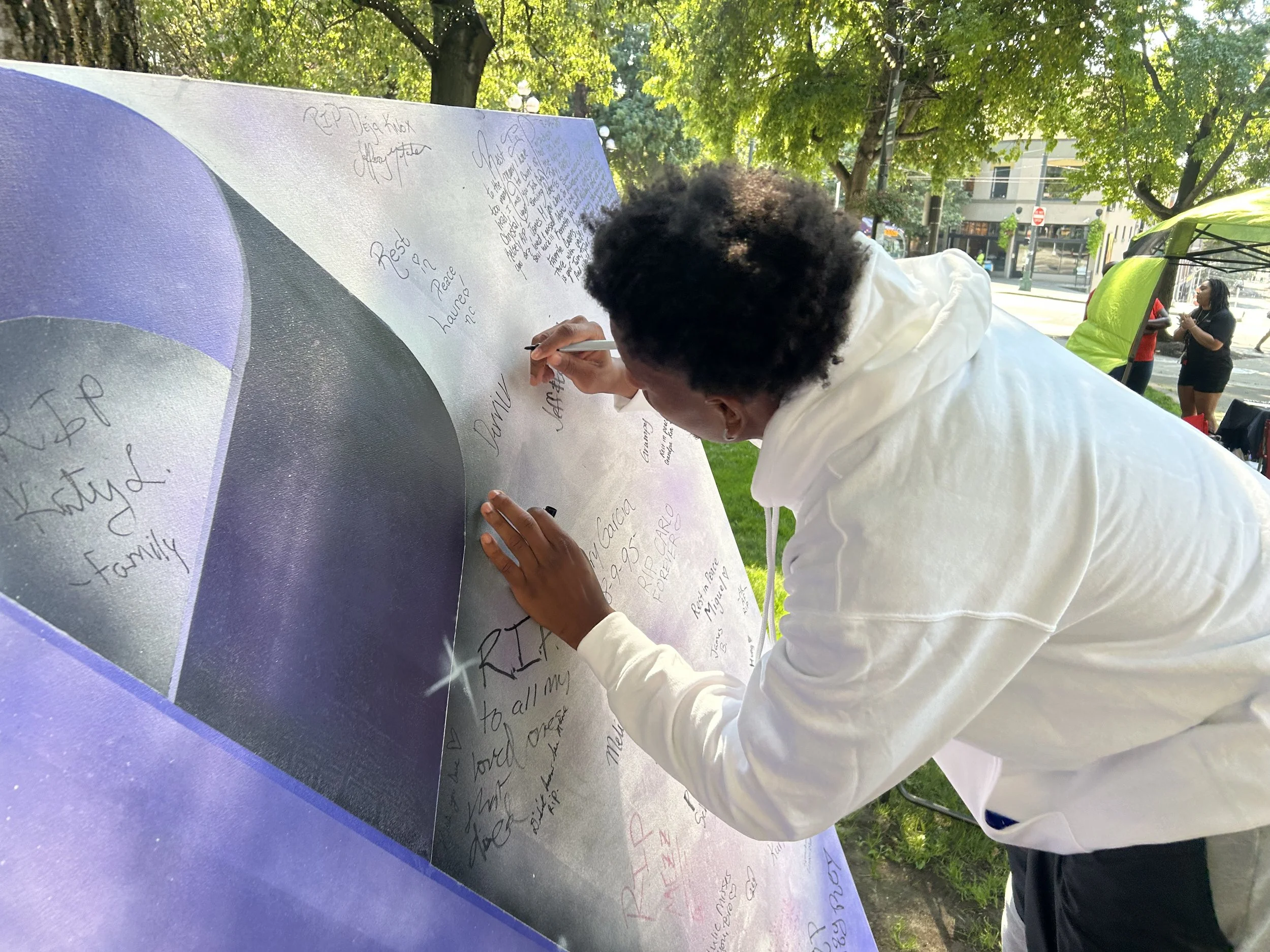Seattle Observes International Overdose Awareness Day with Call for Compassion and Policy Change
Andrew Ashiofu, Co-Chair of the Seattle LGBTQ+ Commission spoke at the International Overdose Awareness Day event at Occidental Square. (Photo: Converge Media)
By Staff Reports
Seattle, WA - In a poignant observance of International Overdose Awareness Day on Thursday, community advocates gathered yesterday at Occidental Square adjacent to the King County Courthouse in downtown Seattle. The event, spearheaded by Vocal Washington and supported by partner agencies including PDA, Freedom Project, King County Public Health, Urban League of Metropolitan Seattle, Reach, King County Recovery Alliance, Hope for Homies, and Harrt, aimed to provide a space for grieving families, educate the public about the fentanyl crisis, and advocate for more compassionate and effective drug policies.
Malika Lamont, Director of Vocal Washington, emphasized the critical importance of the King County Courthouse location for the event. She highlighted that "our highest rate of overdose death is in downtown Seattle," and that this particular area "has been very controversial as far as vulnerable people being able to exist in this space." Lamont stressed the need to "create a space that was kind and loving and supportive of people to be able to feel their grief and express their grief and get support when they oftentimes don't get that." She further pointed out that "the people that are using fentanyl are not responsible for what's in the drug supply," and that "when we continue to stigmatize people and further marginalize them...we could make a different choice in our society. We could regulate drugs. We could create ways for people to access substances in a way that is safer, and also it would make it so the people felt more comfortable asking for the help that they need."
Nick Jeffries, a community outreach organizer from the Urban League of Metropolitan Seattle, reiterated the event's focus on raising awareness about how drug overdose disproportionately affects low-income individuals and people of color. Jeffries underscored the significance of holding the event in an area "where the median household income is damn near a million dollars," to "make sure that people, no matter where you're from, get access to this information and know that it's an actual problem." He also critiqued the criminal justice system's approach, stating it "is as many times used as a means to reduce issues of homelessness, to reduce issues of drug addiction...but when in reality, it exacerbates these issues, because you're now pushing people underground and out of sight." His message to the community was: "Don't be so quick to judge and exile people."
Talon Davis of We Deliver Care was another impassioned voice at the observance, speaking about overdose prevention, framing it as a collective responsibility to build a "culture of care." Davis highlighted that lives are lost "not because they don't care, not because they're weak, but because the drug supply is toxic, and the stigma around substance use keeps people isolated and unsafe." Beyond individual actions like carrying Narcan, Davis emphasized that "Overdose prevention isn't just about one person carrying Narcan. It's about building a culture of care. It's about checking in on each other. It's about never using alone. It's about getting trained, staying informed, and making sure that the people around us know their lives matter." The event offered Narcan training and kits, making life-saving tools accessible to everyone. Davis, whose organization partners with businesses, also noted the importance of providing resources such as "extensive case management, employment, housing, and detox" to bridge the gap between homelessness and community, working towards a safer and more supportive environment for all.

